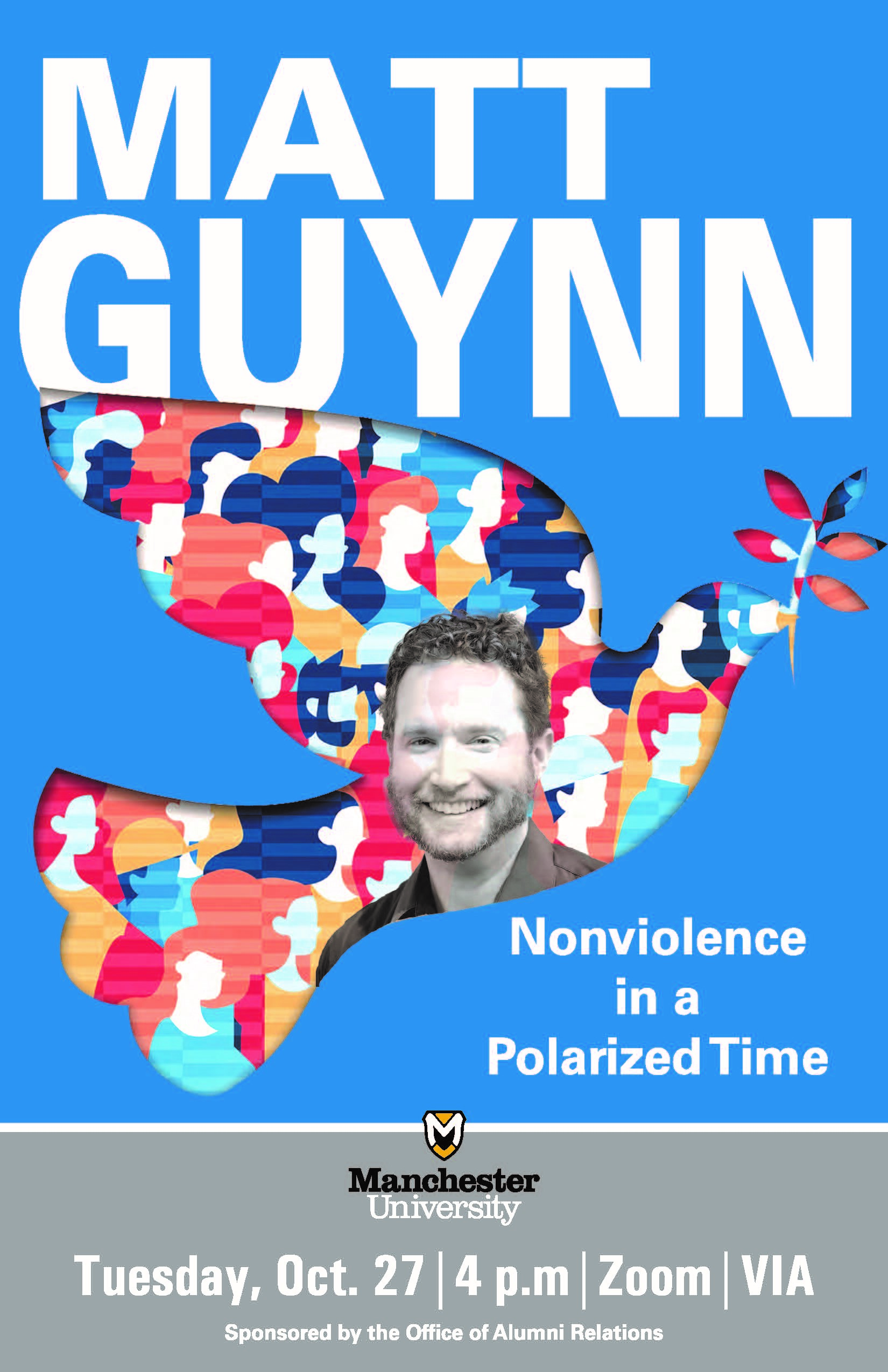 Photo provided by MU
Photo provided by MU
Matt Guynn VIA Explores Peacefully Approaching Division
James Walsh
Last Tuesday on Zoom, a VIA was delivered as the first part of an alumni series at Manchester University. Matt Guynn delivered a presentation titled “Nonviolence in a Polarized Time,” bringing a message of peace and nonviolence through a focus on a style of conflict resolution called “dialectic thinking.”
Guynn works with a non-profit group called On Earth Peace. “Our mission is to develop and walk with leaders and communities who work for justice and peace,” Guynn said when discussing the group’s objective. He went on to discuss the positive influences of the group and ways that those viewing could participate in the organization’s vision of a nonviolent future.
Guynn then began to discuss the organization’s fundamental philosophy of nonviolence based on the same rationalizations of Martin Luther King Jr., philosophy aptly dubbed “Kingian.” He detailed King’s history and how, at the time, he was considered a disturber of the peace and not the hero commonly thought of today.
Guynn took time to discuss how the Kingian way of thinking prioritizes not only considering the acts of Jr. but also turns them into personal practices. Further, he said how the Kingian perspective does not simply avoid conflict but rather “wages conflict,” as he put it, “as a tool to right wrongs, restore relationships, and to work for reconciliation.”
He also discussed how the philosophy discards the concepts of good versus evil when dealing with polarization in modern times, instead focusing on individual perspectives and common ground to resolve any conflicts that may arise.
Guynn then moved on to the crux of the speech, the concept of dialectal thinking (a primary aspect of the Kingian mindset). He said that dialectal thinking’s goal is to “weave together threads of truth.” He then went into greater detail on the components of the method.
Dialectical thinking takes the ideas presented by one side (thesis) and the one’s presented by the opposing side (antithesis) and analyzes the truths that both sides use to make their case. Then through that analysis, dialectal thinking produces a synthesis that gives both sides a satisfying objective.
Guynn noted how most opposing sides never get to the analysis part of dialectal thinking, opting instead to settle into what he called a “right versus wrong mentality.”
He said that through synthesis both sides could be considered “correct” and emphasized the difference between a synthesis and a compromise. In a compromise, both sides settle for something they don’t want, but a synthesis seeks to find a solution both sides are fully satisfied with.
Guynn gave this presentation with hopes of getting one step closer to his vision of a nonviolent world and to tear down the current polarization.